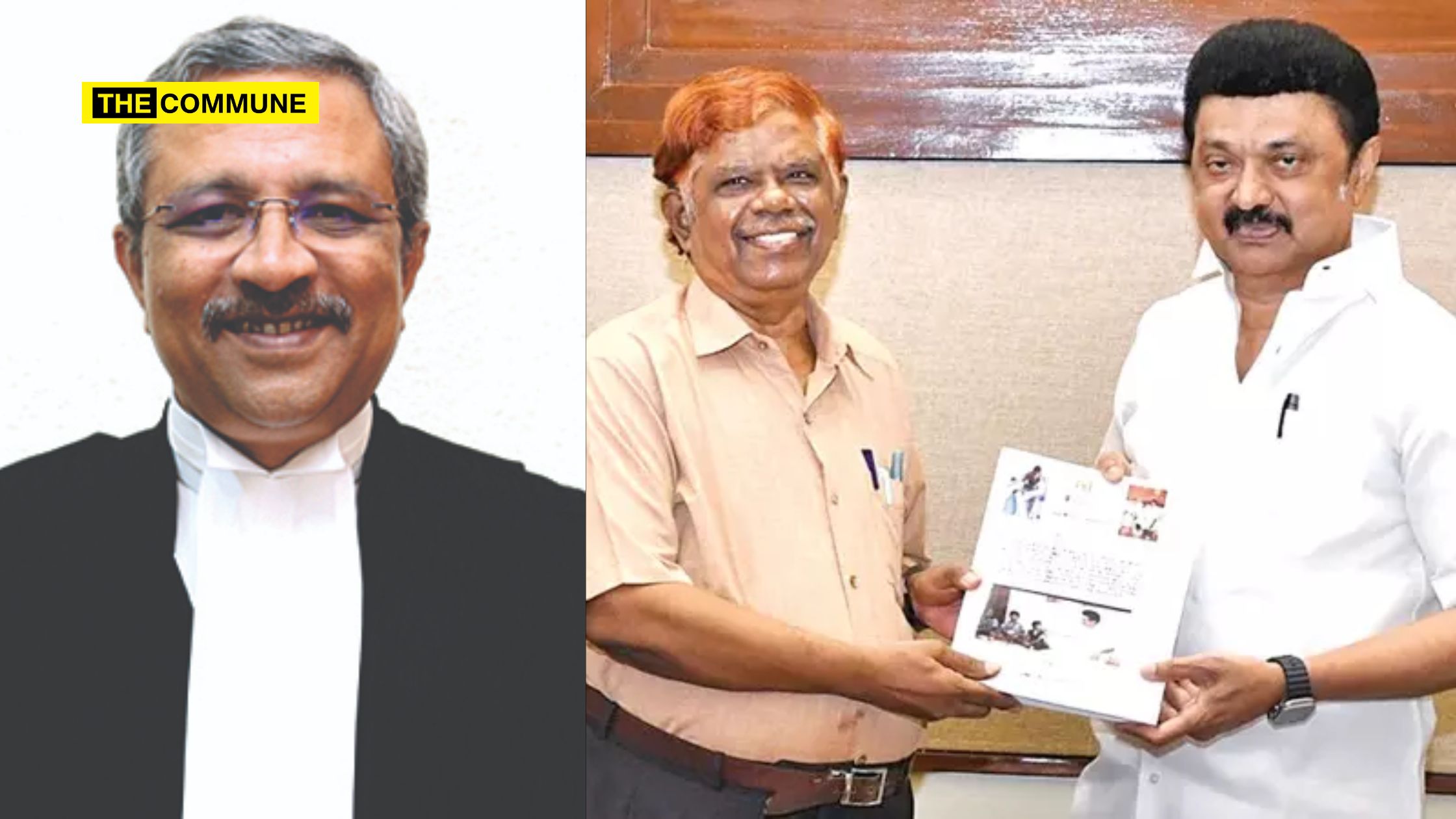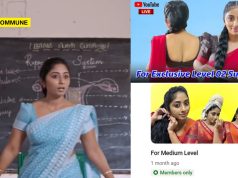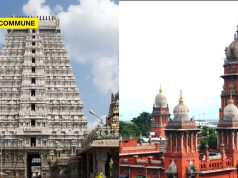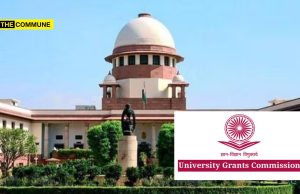
On 2 September 2024, Justice Subramanian of the Madurai Bench of the Madras High Court has expressed his disagreement with the recommendations made by retired Justice Chandru, which were aimed at preventing caste conflicts in schools. He stated that after the controversy surrounding the report, he started wearing “vibuthi”.
The issue arose from an incident in a government school in Nanguneri, where a student was assaulted by peers. In response, the Tamil Nadu government established a one-man committee led by retired High Court judge Chandru in August 2023 to address and recommend measures to prevent caste conflicts in schools and colleges nationwide.
Retired Justice Chandru submitted a comprehensive 610-page report to Chief Minister M. K. Stalin at the Chief Secretariat in Chennai last June 2024. This report included various recommendations for immediate and long-term actions to tackle caste conflicts, which were literally curbing only the Hindu worship and practices. Hence, the BJP and Hindu Munnani have continued to protest against Chandru’s recommendations.
Judge Subramanian of the Madurai High Court has now weighed in. He criticised the government’s response in a case regarding the appointment of permanent deans to government medical colleges, which Justices Subramanian and Victoria Gowri heard. Justice Subramanian noted that while the appointment of deans for government medical colleges is underway, a committee headed by a retired judge was formed to address issues like online rummy and caste conflicts in educational institutions. He questioned why the recommendations of the retired judge on caste conflicts were readily accepted while the appointment of deans was delayed.
Justice Subramanian remarked, “The recommendations of the committee led by the retired judge to avoid caste conflicts in schools are not acceptable to me. To eradicate caste discrimination, we need to increase tolerance.” He expressed his reservations about the report, stating, “After the retired Justice’s report, I am wearing Vibuthi (on forehead).”
Following this, the Madurai High Court has directed that vacant dean positions in government hospitals in the southern districts be filled promptly. While political parties have protested against retired Justice Chandru’s recommendations, Judge Subramanian is the only judge to publicly address the issue.
https://twitter.com/TamilJanam_TV/status/1830882796203843727
Justice Chandru’s committee was formed as the result of the disturbing Nanguneri incident in Tirunelveli district where two Scheduled Caste students were attacked by students from an intermediate caste on the night of 9 August 2023.
The Committee & Its Recommendations
To prevent such caste-based violence, the government set up a one-man committee. Retired Madras High Court judge Justice K. Chandru submitted the report to CM Stalin and recommended “significant” changes to eliminate caste indicators in Tamil Nadu schools. The recommendations include banning coloured sacred wrist threads, rings, and forehead marks – tilak that signify caste, and removing caste-related names from schools. Point 8B states, “Students should be prohibited from wearing any coloured wristbands, rings, or forehead marks (Tilaka). They must also refrain from coming to school on bicycles painted with reference to their caste or exhibiting any caste-related sentiments. Failure to comply with these rules must result in appropriate action being taken, in addition to advising their parents or guardians.”
Some of the other recommendations include:
- The report advises that students must not display any caste-related sentiments, including using bicycles marked with caste references. Non-compliance should result in appropriate actions and parental advisement.
- State-run schools should remove terms like ‘Kallar Reclamation’ and ‘Adi Dravidar Welfare’ from their names. Private schools should be requested to drop caste appellations, with legal action considered for non-compliance, potentially through legislative changes.
- The committee also recommends that student attendance registers omit any caste-related details. Teachers should avoid calling students by their caste or making derogatory remarks linked to caste.
- To enforce these changes, the report suggests amending the Tamil Nadu Societies Registration Act, 1975, to prevent societies intending to start educational institutions from using caste-based names.
- The report also calls for new legislation to promote social inclusion and eradicate caste discrimination, imposing responsibilities on students, staff, and school management, with mechanisms for supervision and penalties for non-compliance.
Additionally, the committee proposes enhancing local bodies’ control over primary education, granting block-level administrations full authority over schools, including staffing decisions. The state government should handle curriculum guidelines, standards, and board exams while formulating new laws to empower local bodies and amend the Tamil Nadu Panchayat Act of 1994 for a more community-focused education system.
This removal of caste names, hiding/”protecting” caste names, and prohibiting wearing Tilak and sacred wrist threads is akin to the Dravidian model of making Hindus remove their caste/surnames. The Dravidian ideologues enforced this removal of a person’s surname as a means to “abolish/eradicate” caste. Ironically, despite having succeeded in removing surnames as a mode of eradicating caste differences, incidents like Nanguneri continue day in and day out.
Critics see this move as a method to divide the Hindus further based on caste and also ensure that Hindus lose their identities forever. Instead of creating awareness and empathy in children about various castes and fostering harmony, recommending such drastic and Hinduphobic measures will only lead to dividing the society further and deepening the Dravidianist ideologies in the minds of the people and destroying society.
(With Inputs From Minnambalam)
Subscribe to our Telegram, WhatsApp, and Instagram channels and get the best stories of the day delivered instantly.




